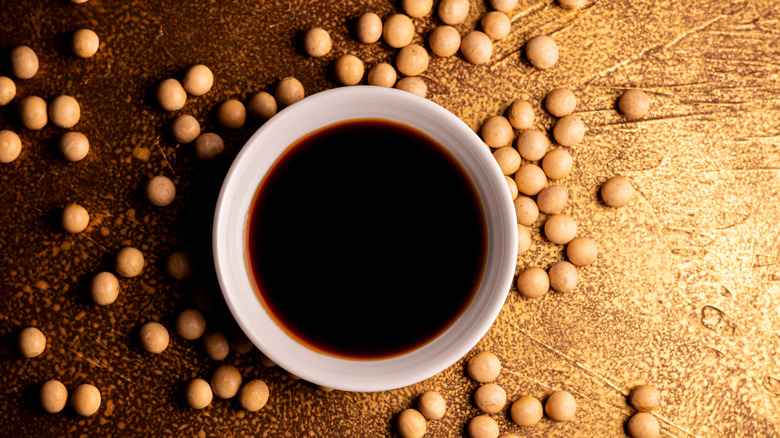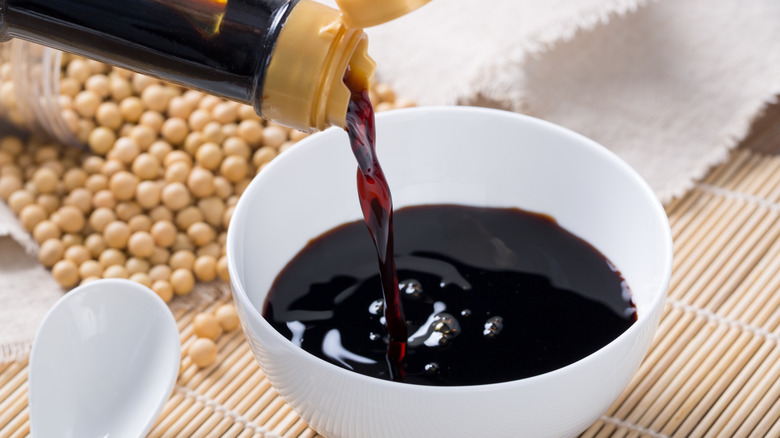The 3 Types Of Korean Soy Sauce
When people think of soy sauce, they usually think of Chinese or Japanese cuisine. However, what most people don't know is that Korea also has its own soy sauce. In fact, it has multiple types of soy sauce, each with their own unique differences.
In Korea, soy sauce is known as ganjang. It comes in three major varieties: joseon ganjang, yangjo ganjang, and jin ganjang. Joseon ganjang is a simple, general purpose soy sauce; yangjo ganjang is sweeter and has wheat in it; and jin ganjang is specifically made using hydrolyzed soy proteins.
Korean soy sauce is undoubtedly unique, but it can also be used in a variety of other dishes besides Korean food. It can add umami flavor to scrambled eggs or be used to make sticky soy steak bites. Adding soy sauce to your pickled cucumbers can also bring them to a whole new level. Each of the three ganjang varieties will bring its own unique trait to the dish it is used with.
Joseon, yangjo, and jin ganjang
Joseon ganjang, which is sometimes known as guk-ganjang or soup soy sauce, is the more commonplace soy sauce of the three varieties. Its ingredients list is also the simplest and most straightforward, consisting of just soybeans, water, and salt. As a result, it has a stronger flavor than the other three.
Yangjo ganjang is different because it also contains either rice or wheat as an ingredient. It also has yeast added and takes roughly six months to fully ferment. Yangjo ganjang has a sweeter flavor and is commonly used to marinade meats, but it may also be used for dipping or in any way that Joseon ganjang would be used. However, it is also known to be more expensive to match its higher quality.
Last but not least, jin ganjang is a chemically produced soy sauce that is made by combining yangjo ganjang and acid hydrolyzed soy sauce. It is a lower-grade soy sauce, making it less expensive than the other two. It is considered a separate kind of soy sauce, not so much due to its taste since they taste relatively the same, but the fact that it is processed and produced in a specific way. The hydrolyzed soy proteins used in jin ganjang are artificially made rather than naturally fermented and is specifically unique to its creation.

